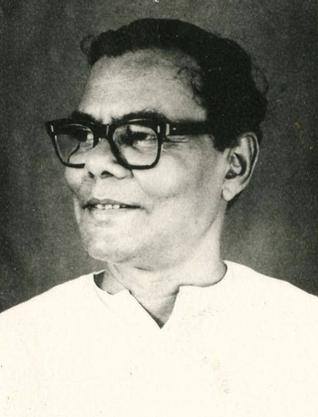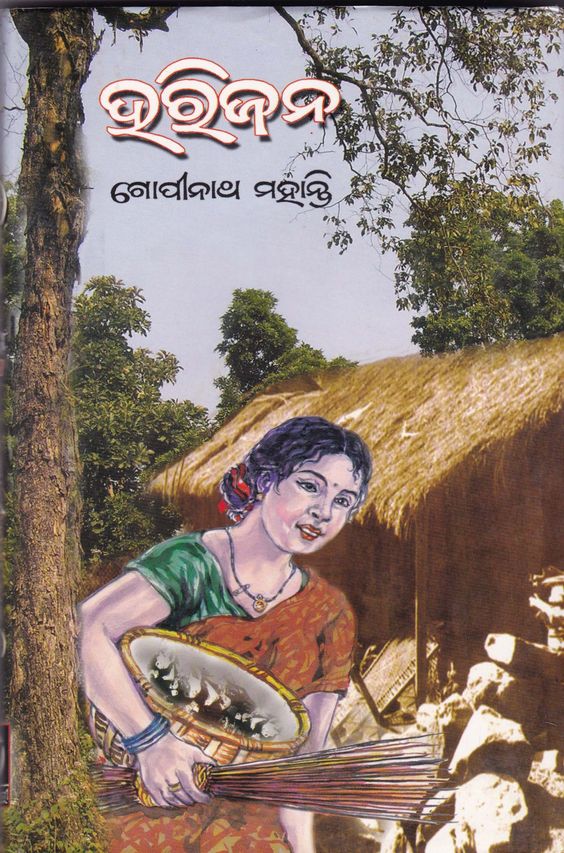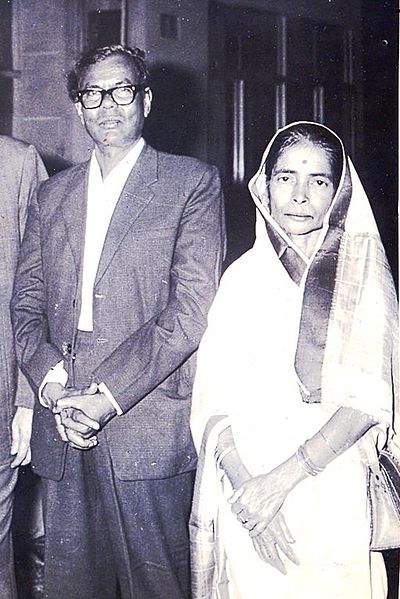The world of Odia literature has always fascinated its readers. Be it mythological, fictional, novels or short stories and poems, the gems of Odisha have thrived their dedication completely into the literature. Talking about Odisha after independence, a few have emerged as the jewels of Odia literature and have taken the fiction to a new level.

In the early 1950s, the era of Odia fiction was established by Byasa Kabi Fakir Mohan Senapati and some writers carried the flow forward with their diligent contributions. After Manoj Das, one of such honorary fiction writers who has given his best to Odia literature is Gopinath Mohanty. Setting the trend of projecting the individual as protagonist in Odia fiction, writers like Gopinath Mohanty have narrated the characters of the soil of Odisha in a prolific manner Gopinath Mohanty .
Gopinath Mohanty for his excellent novel writing, became the recipient of prestigious Jnanpith award.
Contribution to Odia Literature
The excitement of Gopinath’s fiction stuns the reader as in his greatest of all time Paraja or Amrutara Santana, that reflects the portraits of characters in the text Gopinath Mohanty. The prolific writing style and the magical spell of his penning grips the attention of the readers. Mana Gahirara Chasa sounds like his first novel that was published in 1940. Dadi Budha in 1944, follows certain more as countable as around more than 20 novels he has written, showing his prolific storytelling capabilities.
In his life period he wrote twenty-four novels, ten collections of short stories, three plays, two biographies, two volumes of critical essays, and five books on the languages of the Kandha, Gadaba and Saora tribes of Odisha. He translated Tolstoy’s War and Peace (Yuddh O Shanti), in three volumes, 1985–86), and Rabindranath Tagore’s Jogajog, (1965), into Odia.
Gopinath Mohanty wrote his first novel on the tribal community in 1944 and it was Dadu Budha. The novel is a perfect portrayal of life and tradition of the tribal people of the mountainous region surrounded by thick forest Gopinath Mohanty . The novel is a mark tracer in the field of Tribal Literature and corresponds to Chinua Achebe’s classic tale of Colonial invasion of tribal culture. Things fall Apart and foregrounds almost the same theme – the impact of modernity and disintegration of tribal society.
Gopinath Mohanty

One of Mohanty’s best works, Paraja (1945) serves the readers with a moving story. The story is based on the life of a tribal community, it tells the tale of one’s attachment to land, the soil of one’s ancestors. According to the Legendary writer, Sitakant Mahapatra Paraja is the story of shattered dreams. The novel also implicitly portrays the impact of colonial rule in Odisha tribals.
His Amrutara Santana (1949), became the first novel to receive the Central Sahitya Akademi Award (1955). The story describes the life story of the Kandhas Gopinath Mohanty , another tribe in the southern parts of Odisha.
Other excellent works of Gopinath include Mati Matala, Laya Bilaya, Harijana.
‘Pimpudi’ , one of the best short stories of Gopinath, leaves a mark of impression as influencing in the mind of the reader. The story of a forest officer checking rice smuggling to Madras told in an excellent way treats the reader with thought provoking morals.
You can read our another post on The Leaning Temple of Huma: A Unique Architectural Wonder
Life
Gopinath was born on 20 April, 1914 at Nagabali in Cuttack. He was a student of the Ravenshaw college as well as completed his education from Patna University.

Entering into the Odisha Administrative Service in 1938, Mr. Mohanty served the poors mostly tribes of Odisha. Specifically, the tribes of the undivided Koraput was his serving place. Most of his fictions are based on the lifestyles of the tribal people and communism.
After retiring from government service in 1969, Mohanty He worked as a UGC Distinguished Visiting Professor and Writer-in-Residence for two years, at the English Department, Utkal University in the late 1970s, invited by Professor Prabhat Nalini Das, Founder-Professor and Head of the English Department, Utkal University. Later In 1986, he joined San Jose State University in the USA as an Adjunct Professor of Social Sciences. He died in San Jose, California on 20 August 1991.
Awards and Honours
Gopinath Mohanty, a big name in Odia literature, has been awarded with enormous accolades. The list goes as follows.
- Mohanty received the Visuva Milan citation in 1950.
- He bagged the central Sahitya Akademi Award in 1974 for his prose-epic,Mati Matala (The Fertile Soil; 1964).
- He was awarded the Soviet Land Nehru Award in 1970 for his Oriya Translation of Gorky’s work, My Universities, the D. Litt. Degree by Sambalpur University in 1976 and a Fellowship for Creative Writing in Oriya by the U.G.C. in 1979.
- In 1981, the government of India conferred on him Padma Bhushan in recognition of his distinguished contribution to literature. He was an Emeritus Fellow of the Government of India for creative writing.
The Last Words
As a writer, Gopinath has completely dedicated his wrath towards the Odia literature. He is in true words, a gem of the literature world. Readers still praise his acclaimed writings. Even after death, he is still living inside the hearts of thousands of readers of Odia literature.

2 Comments
Thanks ffor sharing your thoughts. I truly apreciate your effortfs aand I aam
waiting for yolur nex post thnk you oce again.
Hey … nice to read some odia author story… hope u bring such stories more